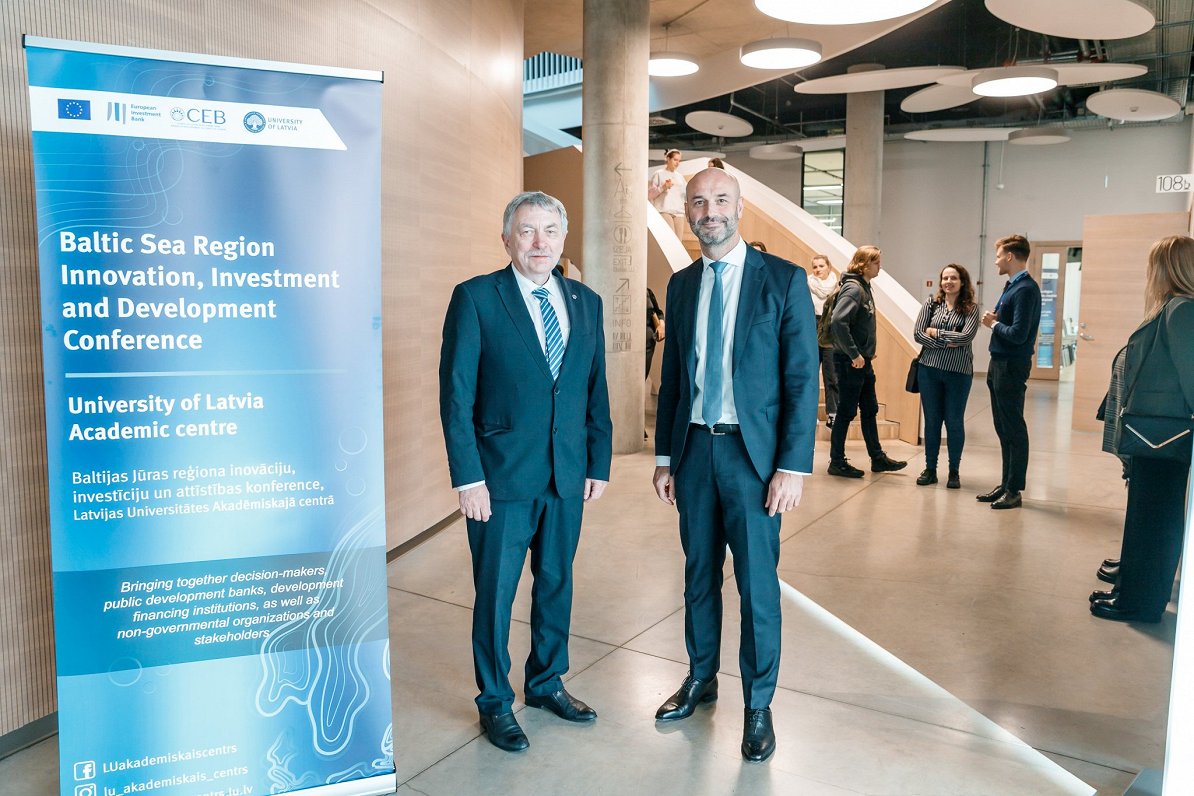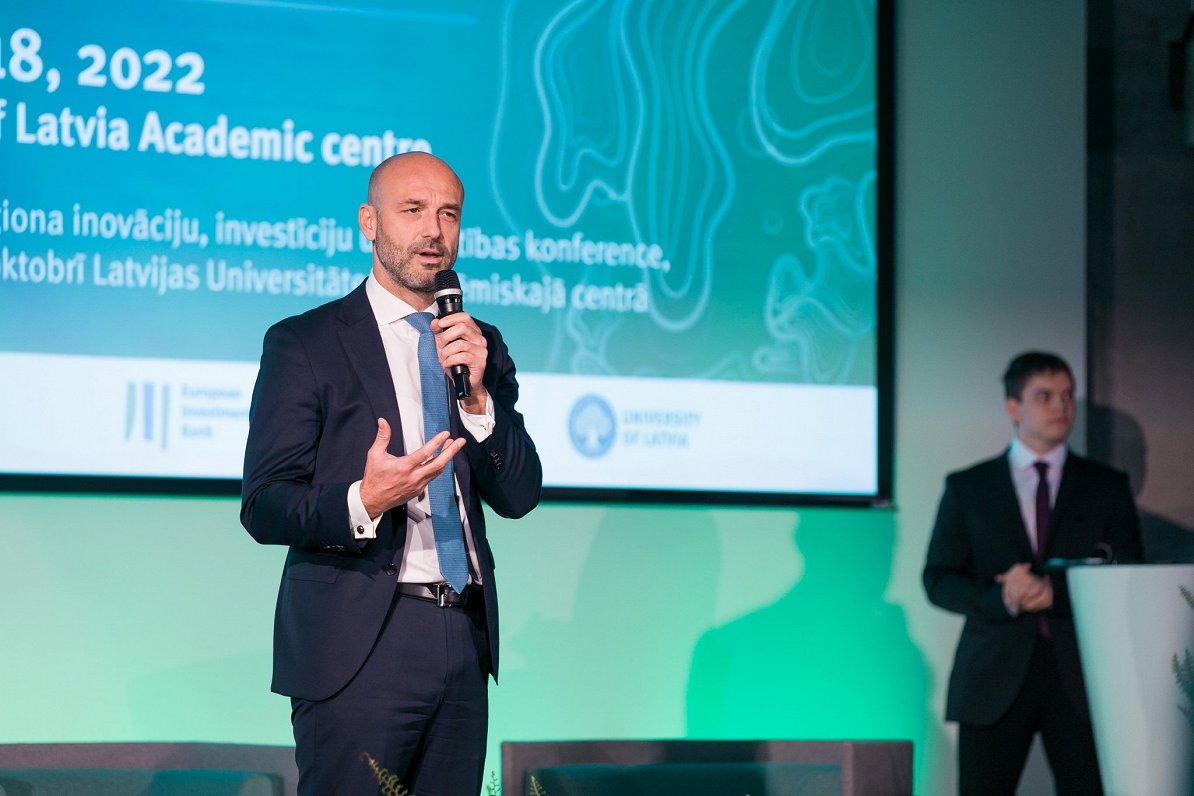Speaking at the at the Baltic Sea Region Innovation, Investment and Development Conference in Rīga, Tomáš Boček, CEB Vice Governor for Target Group Countries said: "In order for the implementation of development projects to be even more successful, cooperation between various public development banks at different levels should be further improved, including between international financial institutions and national development banks."
"The closest goals of CEB in the Baltic region include projects targeted at climate neutrality and sustainable development," said Boček.
At the end of 2017, co-financing of 12 million euros was granted for the development of projects of the second stage of the development of the Academic Centre of the University of Latvia, as part of which the House of Science was built, and the House of Letters is currently under construction.
The LU development plans include uniting the majority of LU students, scientists and employees in the Academic Centre of the University of Latvia.

On November 18, 2021, the CEB Administrative Council approved support for the third stage of the development of the Academic Centre of the University of Latvia, emphasizing the Health House and House of Sports projects and evaluating them as appropriate for receiving bank financing of 15 million euros.
The CEB is a multilateral international financial institution with a social mandate in its operations. The bank was established in 1956 with the original goal of finding solutions to the refugee and migrant issues and continues to support projects with high social impact. It is focused on social cohesion and integration efforts in cooperation with regional and national development banks and other public institutions in all member states.
Currently, the CEB provides loans and guarantees to its 42 member states including Latvia, which joined on September 14, 1998. According to data from the Ministry of Finance, the CEB has invested over 373 million euros in Latvia.





























